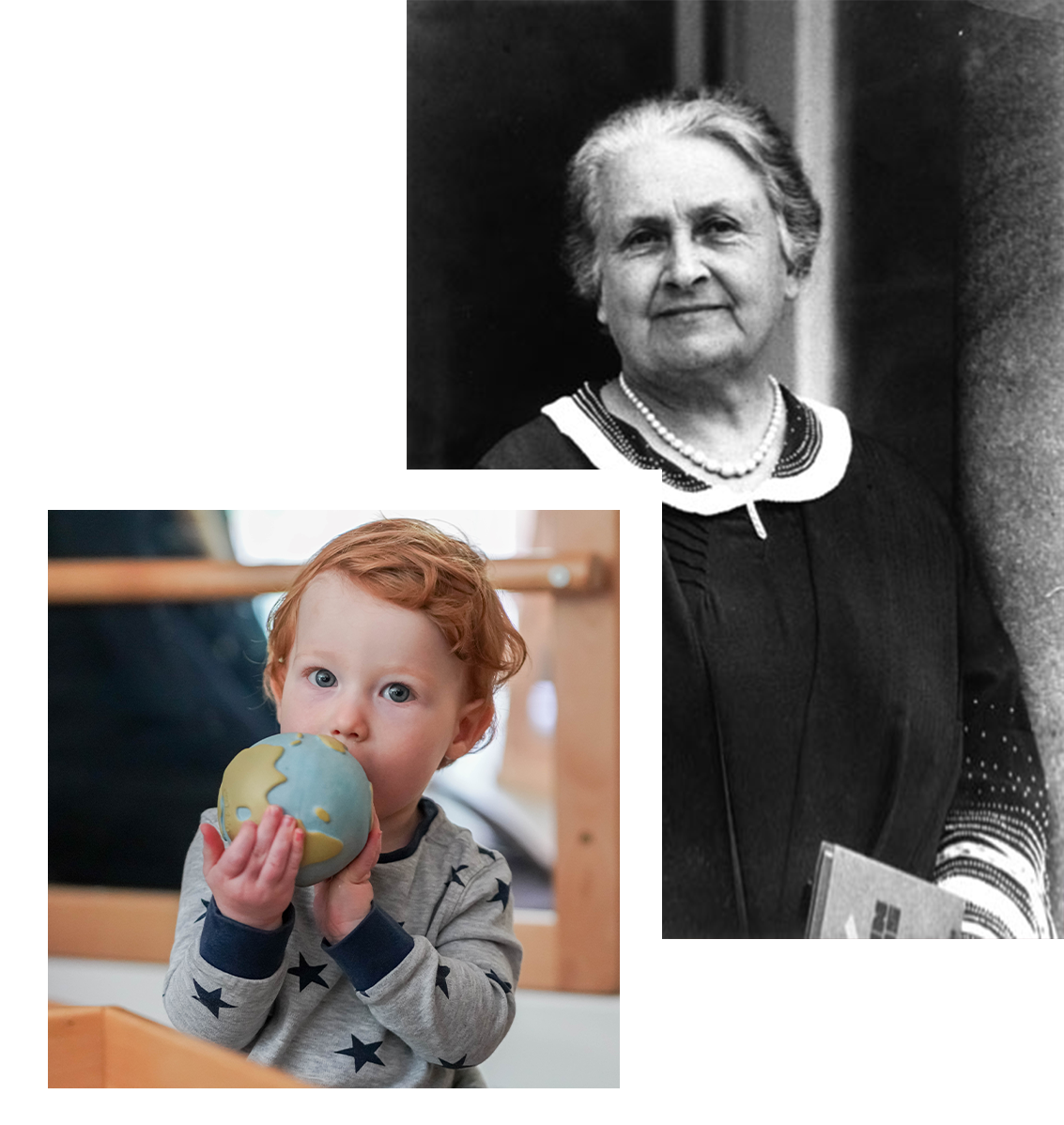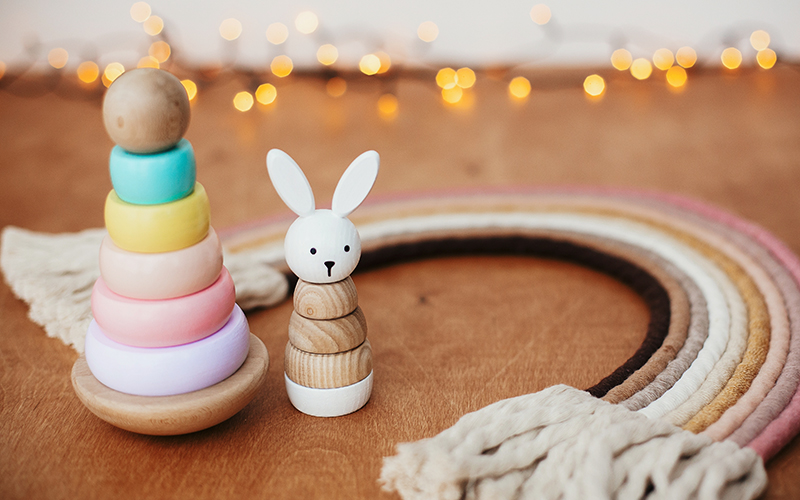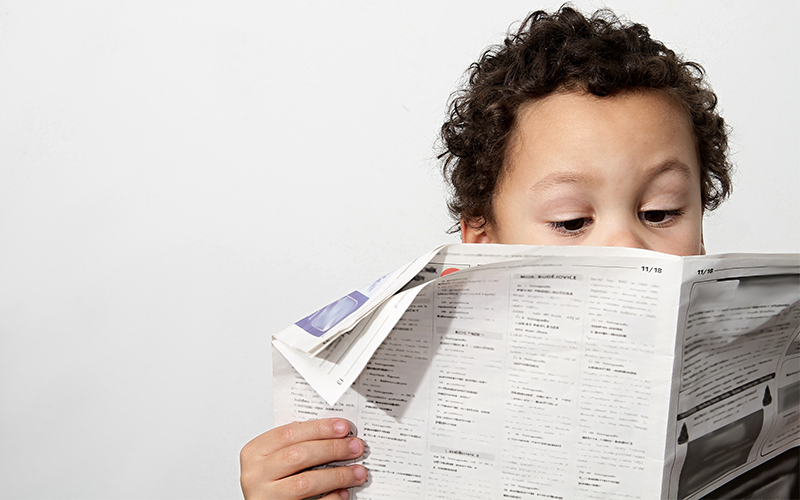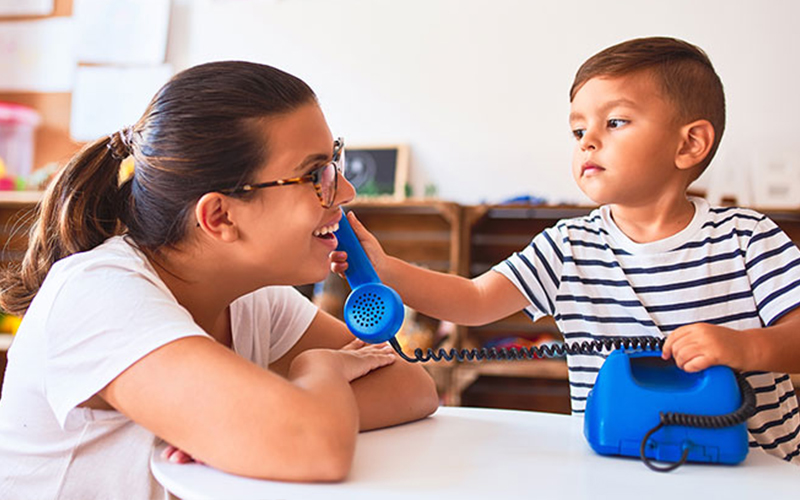Why Montessori?
Why Montessori?
“The education of a small child, does not prepare him for school but for life.”
Maria Montessori

Why Montessori?
Montessori schools promote hands-on, self-paced, collaborative and joyful learning where each child is respected both as an individual and as a contributing member of the community.
Born in Italy, Dr Maria Montessori (1870-1952) was one of the most influential pioneers of Early Years education. Her ideas – particularly her assertion that children learn more effortlessly up to the age of six than they ever will again – have been recognised worldwide for over a century and are just as relevant today.
Embracing Montessori
Dr. Montessori believed that every child possesses immense natural energy and, given the right situation and stimulation, can develop skills and achievements way beyond normal expectations – regardless of challenges they may face in other areas of their lives. Only by respecting and nurturing each child’s unique personality and learning style can we help them to reach their full potential
Why Montessori?
Dr Montessori discovered that when children are allowed freedom to make their own choices they naturally choose those activities that best serve their learning needs. By working uninterrupted, they develop superb powers of concentration – even a very young baby will spend a long time playing with an object that is attractive to them if not interrupted by an (often well-meaning) adult.
Colourbox Montessori School embraces the Early Years Foundation Stage framework 2024 alongside the Montessori Method.
Montessori - at Colourbox
Let us tell you why Montessori education works so well for the children in our nursery schools.
“Establishing lasting peace is the work of education”
Dr. Montessori felt that education can change the world for the better and so peace and cultural studies are a key element of our Montessori school. We learn about the cultures of those children attending Colourbox as well as those of people from different parts of the world, learning about their lifestyle, folklore and beliefs. If you take a look at our Facebook page, you can see our team sharing different cultures with the children in our schools.
Our Curriculum
The Montessori Method allows children to learn in a holistic way because all of the curricular areas are inter-related – one lesson leads to many others. In our early years Montessori rooms the activities and Montessori materials are organised in a logical sequence on low shelves. There is an area for exercises of Everyday Living, one for Sensorial, one for Language, another for Maths and other areas for Culture – i.e. Art, Music, Geography and Science.
The Montessori materials present abstract ideas in a concrete, three-dimensional way, and are designed so that children are naturally drawn to explore them – they are a ‘launch pad’ leading children to make their own discoveries. Each activity has been designed to isolate one concept and also has a built in ‘control of error’ so that children can easily check their own work. As a result, children’s independence and confidence is fostered because they can work and learn at their own pace. Children can choose to work alone or with friends and they learn not to be afraid of making mistakes and that they can try again without fear or embarrassment.
Respect for the Child
“Help me to do it alone”
This is the major principle underlying the entire Montessori method. Montessori educators show respect for children by helping them to develop the skills and abilities necessary for effective learning autonomy and positive self-esteem.
The adults in a Montessori classroom are guides and not ‘teachers’ in the traditional sense. The adults recognise that they are role models for the children – they speak to the children at their own level and in a calm voice, as well as modelling peaceful conflict resolution and respect for all children, their work and the environment. They also support social development by encouraging freedom of interaction so that the children can develop a sense of empathy and compassion for others. Dr. Montessori believed that children develop inner discipline through taking control of their learning, through choices, clear rules and consequences.
The Absorbent Mind
“The child has a type of mind that absorbs knowledge and instructs himself.”
Montessori education is based on the principle that children are constantly learning from the world around them – they absorb information through their senses. This learning is unconscious – compare how easily a child learns to speak their native tongue with how painstaking it is for an adult to learn a foreign language. It is important to remember that what a child learns depends on their environment, their experiences and the adults around them.
The Prepared Environment
“The adult, the child and the environment are a trinity. They should be considered as one.”
Dr. Montessori believed that when children are given freedom to explore a carefully prepared (‘favourable’) environment they become independent, active learners. She described this as “Freedom within limits”. Montessori teachers are an important aspect of the favourable environment and they prepare themselves for the task of guiding rather than teaching. They use their observations of children’s interests and developmental needs to provide rich learning experiences which are freely available and incorporate all of the senses. Once they have put the child in touch with the activity the child is then free to explore it. Children in a Montessori environment have freedom to concentrate on a task for as long (or as short) a time as they wish. It is important that any additional materials (other than the beautifully crafted Montessori equipment) should be ‘real’ and of appropriate size for little hands, e.g. small knives that safely chop. This means that the child is able to work on his/her own without frustration and without having to depend on adults for help with movement. Natural materials are used rather than synthetic whenever possible.
The Montessori teacher is also responsible for maintaining beauty and order in the environment and the children are always keen to participate in this – for example, our children in the 3-5yr rooms joyfully prepare their own snack, clean up after themselves and return activities to the shelves.




